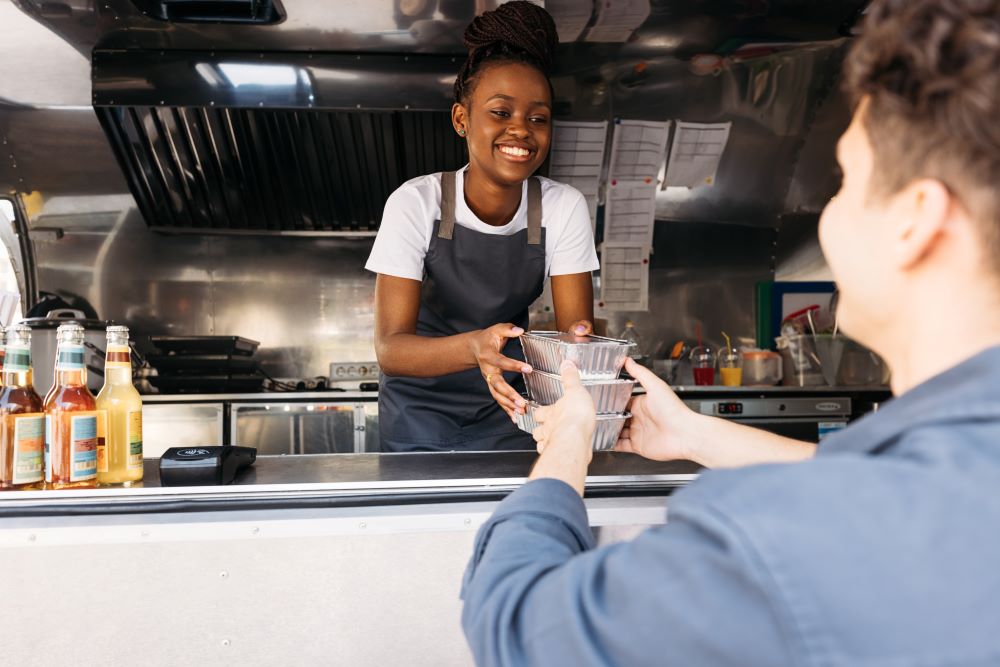Insurance for takeaway businesses

In the bustling world of takeaway businesses, insurance is not just a formality; it’s a crucial aspect of daily operations that safeguards against unforeseen events and ensures the smooth running of service. Here we look at the essential insurance policies and practices that takeaway businesses must adopt, focusing on general housekeeping and health and safety measures.
Health & safety policy
For businesses with five or more employees, it’s mandatory to have a written health and safety policy in place. This serves as a blueprint for identifying potential hazards, implementing safety measures, and ensuring a safe working environment for all staff members.
Cleaning and maintenance logs
The importance of maintaining a cleaning log cannot be overstated. Regularly signing and updating this log when cleaning tasks are completed not only helps in keeping track of cleanliness but also serves as a record in the event of health inspections.
Machinery maintenance
Takeaway businesses rely heavily on their kitchen equipment. Hence, regular cleaning and maintenance checks are vital to prevent malfunctions and accidents. Ensuring that machinery is in top condition also contributes to the efficiency and quality of the takeaway service you provide.
Professional cleaning requirements
Many insurance policies require a professional clean of ducting and grease traps at least once a year. However, this is evolving, with some insurers now requiring up to three professional cleans per year, reflecting a heightened focus on hygiene and safety.
Slips, trips, and stillage conditions
Implementing a slips and trips policy is essential to prevent common workplace accidents. Additionally, avoiding the storage of stock on the floor and using stillage can significantly reduce the risk of such incidents.
Food hygiene rating
A 5-star food hygiene rating is not just a badge of honour; it’s a testament to a business’s commitment to health standards. This rating can also influence customer trust and preference, potentially impacting the business’s bottom line.
Fire safety compliance
Compliance with the Fire Safety Order 2005 is non-negotiable. It outlines the responsibilities of businesses to prevent fire hazards and ensure the safety of employees and customers alike.
Fire protection measures
Effective fire protection includes having the correct types of extinguishers, fire blankets, and a reliable fire alarm system. For takeaway businesses, especially those situated on the ground floor of a building, a P1 fire alarm system that covers the entire building is recommended over a P2 system that only covers a specific portion.
Employers’ liability insurance
Employers’ liability insurance is a legal necessity. It’s crucial to confirm the specifics of delivery methods, as most policies cover third-party providers and car delivery drivers, but some have reservations about mopeds due to the associated risks.
Where to find help for your takeaway insurance needs?
In conclusion, insurance for takeaway businesses is a multifaceted subject that intertwines with various aspects of operations, from health and safety to fire protection. By adhering to these guidelines, takeaway businesses can ensure they are well-protected, compliant, and ready to serve their customers with peace of mind.
If you have or are thinking of setting up a takeaway business contact your local Howden branch for specialist insurance and advice. If you would like a specific Howden contact then please speak to Damien Maidment, Commercial Account Manager from our Eastleigh branch, on 02380 171918.







